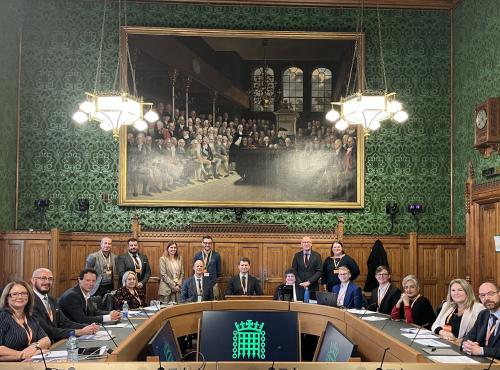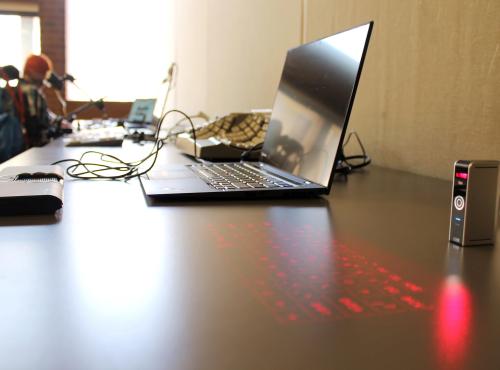This Global Accessibility Awareness Day, let’s keep pushing for digital inclusion for everyone
For me, accessibility is about my eyes. It’s about being able to read documents and access the visual world in the same way as people without a visual impairment.
I do this through technology that reads text aloud and changes colours and font sizes of information on a screen. It’s really important that disabled people are co-creators in designing the virtual and built environment. For example, when I’m at the train station, I need the signs to be clear, with readable fonts and contrasting colours.
The social model of disability says that it is barriers in society that disable people by restricting their access to the world. Assistive and accessible technology (ATech) works to stop society excluding people in this way by removing barriers to participation.
It tackles physical barriers. For instance, a motorised wheelchair can help people get around. ATech also looks at organisational barriers, in how society structures and organises itself. One example is that society prioritises hearing and speaking in communication but captioning on meetings can include Deaf people. And it helps remove attitudinal barriers. For instance, remote working enables neurodivergent people who may have sensory difficulties to work in a location where they can control their environment.
The digital divide
In the UK, 15% of people with disabilities have never been online, and 35% of people with learning or memory disabilities do not have what the Office for National Statistics describe as ‘Essential Digital Skills for Life’, according to ONS studies from 2020 and 2021.
So, while digital exclusion affects many people for many reasons, people with disabilities are disproportionately affected.
This digital divide came to a crisis during the Covid-19 pandemic. Disabled people, who were on the whole more vulnerable to the effects of Covid, were in some cases completely cut off as the world moved online due to lockdown.
Projects such as the Digital Lifeline project, funded by the Department for Culture, Media and Sport, and work by Diversity & Ability, Justlife, Citizens Online, Crisis and the Digital Poverty Alliance, among many others, helped mitigate this emergency.
The Digital Lifeline project provided people with learning disabilities with digital devices, data packages to access the internet and support in how to use them. It found that this combination reduced loneliness and gave people confidence. People used the devices to connect with friends and family and pursue hobbies and interests to keep themselves active and learn. 91 percent of recipients experienced at least one benefit from the Digital Lifeline after 4 weeks, including improved digital skills and feeling more connected.
This model has proved successful in reducing digital exclusion. However, this and others were short-term projects. There remains a need to close the digital divide and ensure digital inclusion for all, but it now needs to be done in a strategic, long-term way.
Opportunity for change
There is also now an opportunity for change. In the Queen’s Speech there was mention of accelerating the roll out of broadband networks so more people can have access to good digital connectivity, one of the three key elements of digital inclusion, showing that this is on the agenda for parliamentarians. The recently-announced Shared Prosperity Fund could provide funding for these initiatives, as boosting digital inclusion will work towards all four of the fund’s stated aims.
The priority now will be to build on these opportunities with action, by bringing together stakeholders including charities, disabled people, the tech sector and policymakers to think strategically about digital inclusion long term. Policy Connect will be doing just that at a roundtable in London Tech Week, hosted by London Tech Advocates. This will be part of our ATech Policy Lab – a venture that seeks to make technology work for everyone.
The roundtable will be livestreamed on the London Tech Week platform, so please do tune in to learn more.
The pandemic laid bare the digital divide in the UK, and the response from the public, corporate and charitable sectors helped a lot of people avoid a crisis. However, as we emerge from lockdowns, we must tackle digital exclusion strategically and sustainably into the future.
Shamima Akhtar is Policy Coordinator for Assistive and Accessible Technology at Policy Connect. If you’d like any more information about our roundtable, upcoming work or the ATech Policy Lab, please contact her on Shamima.Akhtar [at] policyconnect.org.uk (Shamima[dot]Akhtar[at]policyconnect[dot]org[dot]uk).


